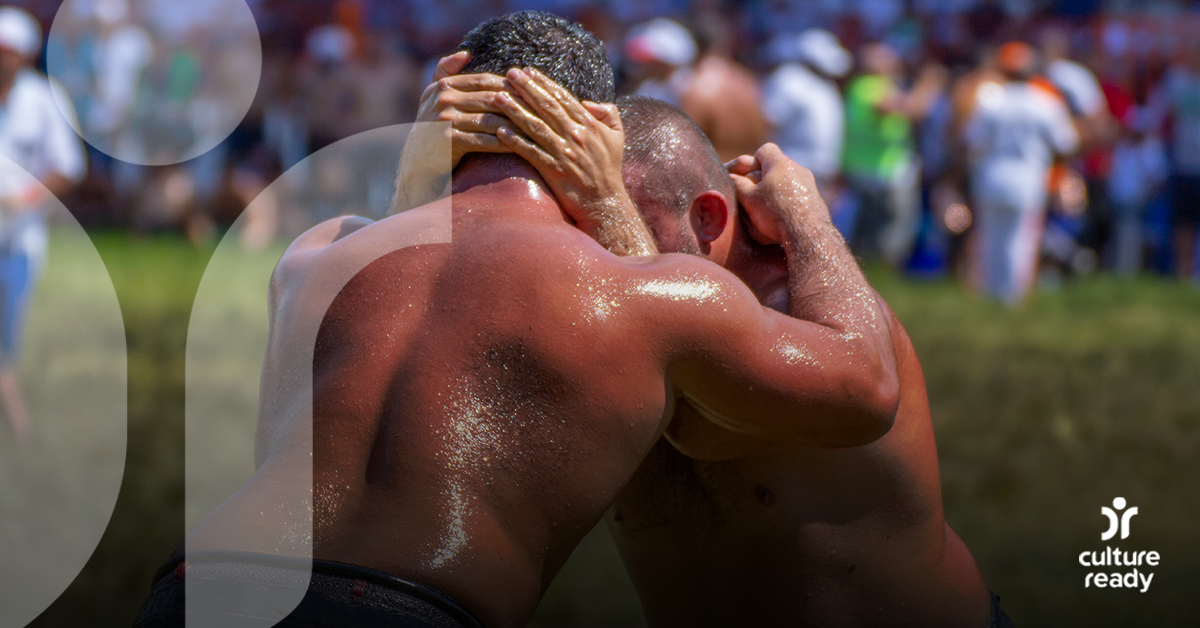Turkey's National Sport: Oil Wrestling
Turkey’s national sport, oil wrestling, was made popular by the Ottoman empire in the mid-14th century. Legend says the sport gained popularity after two famed soldiers fought in hand-to-hand combat at Edirne in northwest Turkey. Today, the city is the site of the Kırkpınar Oil Wrestling Festival—the largest oil wrestling tournament which takes place over three days every June.
The object of each oil wrestling match is to make your opponent's belly button face the sky—a task made more difficult by the fact that the wrestlers wear leather pants made from water buffalo that weigh 29 pounds.
The oil’s intended purpose is to level the playing field. It makes a wrestling match less about size and strength and more about technique and skill. Historically, people in Turkey would apply oil to their skin to ward off mosquitos. Wrestlers adopted the practice adding a unique twist to the sport.
The winner of the Kırkpınar tournament receives approximately $100,000 and the title “The Champion of Turkey.”
In addition to the main athletic event, the festival includes music and foods such as roast lamb. People play traditional Turkish instruments like the davul (a drum) and zurna (a type of flute).
Competitors of all ages participate in oil wrestling matches. Wrestlers from traditional backgrounds train an apprentice called a cirak to take over their place in the competitive circuit when they retire from wrestling. In Turkish society, oil wrestling is a display of masculine strength and physical prowess, both of which are considered important virtues
Similar to Japanese Sumo wrestling, religious motifs are a part of oil wrestling. Without a spiritual element, the participants consider the conflict of wrestling “harmful to the development of character.” The oil adds a symbolic element of balance to the competition, serving as a link to the spiritual aspects of the sport.
For centuries, matches didn’t have time limits and could last for hours—or even days—if a victor wasn't apparent. However, in 1975 the sport’s governing body determined that matches would officially last 40 minutes, with an overtime period if necessary.
Having won the Kırkpınar tournament eight times, Ahmet Taşcı is considered one of the best oil wrestlers since the foundation of the Turkish Republic.
Learn More:
10 Things to Know About Oil Wrestling
Turkish Oil Wrestling
